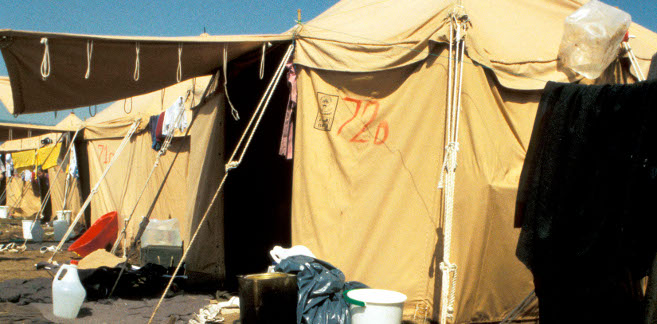Examples of Post-conflict & Post-disaster Recovery Projects

Post-conflict & Post-disaster Recovery
Post-conflict recovery and peacebuilding includes activities seeking to strengthen capacities for peace, decrease the potential for violent conflict, and enhance local capacities to manage conflict without violence. This may also mean strengthening governance and the rule of law, training local leaders in conflict resolution methodologies, demobilizing and reintegrating soldiers, developing local economies or establishing an effective and functional conflict early warning system. InterWorks is regularly requested to undertake research and implement projects on themes related to peacebuilding, conflict management, and conflict prevention.
Transition Assistance
The nature of violent conflict in the world has changed dramatically in recent decades in terms of its causes, targets of violence and consequences. Internal conflicts not only destroy buildings and bridges, but also deliberately victimize civilians and leave deep scars in communities which are frequently challenged by weak or malfunctioning government structures.
Helping to rebuild war-torn societies has become one of the priorities of international development and humanitarian agencies. Within the past decade, the international community has learned that we must be mindful of the particular challenges of the need to implement specific methods in our transition-related aid. A speedy commencement of assistance, involving a carefully established strategy is necessary in transition situations. Transition assistance must be programmed in a manner which is sensitive to the root causes of conflict. It should aim to ensure human security by reaching victims promptly. This assistance should also serve to enhance the capacities of legitimate governing structures to help their own citizens. The external aid input has political implications in the post-conflict transition phase.
Peacebuilding Research & Program Design
Helping societies recover from violent conflict and building sustainable peace has always been a major task. It is an important and ongoing challenge, not only because more and more countries are affected by conflict, but also because unresolved conflicts inevitably lead to instability. Consequently, sustainable and appropriate post-war rebuilding is a prerequisite to preventing future conflicts.
The challenge of rebuilding societies after conflict is much more complex and difficult than the task of putting an end to fighting. Solutions cannot be imported; peace has to be built by the people affected. But, they cannot do it alone. The international community can and must help them to consolidate peace and overcome the legacies of war. If this does not happen, local conflicts will resume, threatening to destabilize larger regions, undermining development and devaluing hope for the future.
